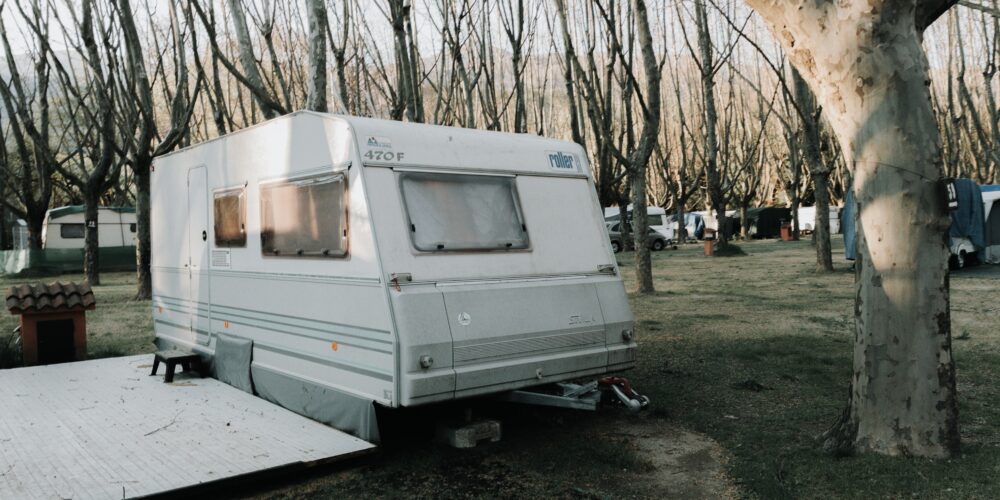While lockdown might be lifting in the coming months, many of us are sticking close to home this year when it comes to our holidays. Owning or even hiring a caravan makes a UK-based holiday a breeze, giving you the independence of a self-contained accommodation that you can take anywhere in the country. No more fighting for the last room in a hotel, or learning the lay of a new self-contained cabin or hut – you can take your own home comforts with you for an ideal trip with minimal stress.
To really set your trip off on the right foot, you need to make sure that your vehicle is in top shape to safely tow. Here’s what you need to know:
Make Sure Your Car Can Tow The Weight
First things first, you need to make sure that your vehicle has the capabilities to tow what you need to tow. You first need to know the total weight of the caravan or trailer that you’re hoping to tow, including the weight of any additional load included. Once you know this, you can check with the given towing capacity of your vehicle, usually found in the handbook. You could also calculate it yourself using the VIN plate. Line one is the maximum allowable mass, and line two is the maximum train mass. If you subtract line one from line two, you will have the vehicle towing limit.
However, if you are new to towing, it’s suggested that you should keep the fully laden weight of the caravan or trailer at no more than 85% of the kerb weight of the car (you can find the kerb weight in your owner’s manual).
Make Sure The Vehicle’s Maintenance Is Up To Date
If your vehicle hasn’t been serviced lately, it’s important to ensure that you book your car in with a qualified mechanic before setting off anyway with a caravan or trailer in tow. Your vehicle will be put under stress while off on your travels, so it’s important to ensure that it’s in the best possible condition before you go. Oil and filter changes are important, but you should also be checking brake pads, engine coolant levels and transmission fluid levels. Having the brakes checked on your car, and on the towed vehicle, is also advised.
Check The Tyres
Checking the tyres not only on your car but on the towed vehicle will ensure that you set off on the best foot. You need to check the tread, as well as the tyre pressure of both your car, and the caravan or trailer, and take care to check for any cracking or dry rot if the caravan/trailer hasn’t been moved in months. These checks are quick and can give you that extra peace of mind that you can get from A to B safely.
Know The Rules And Requirements
In the UK, there are certain rules and requirements that drivers need to adhere to when towing anything. These include:
- Speed Limits – If you’re looking to tow any kind of combination of car and trailer, you’ll need to stick to certain speed limits. On standard roads, 50mph is the limit, but on dual carriageways and motorways, you can tow at up to 60mph, providing no lower speed limit is stated. You also cannot tow in the ‘fast lane’ or right hand lane of a motorway if it is three, four or more lanes. You’ll also need to have a speed limit sticker clearly visible on the offside rear of the trailer or caravan.
- Electrics – You will need to ensure a caravan has a wire and seven-pin socket to power the electrics.
- Headlights – When towing, the back of your vehicle may be closer to the ground, so you’ll need to adjust your headlights accordingly. This is to avoid dazzling oncoming drivers when driving in low light or dark conditions.
- Brakes – If the caravan weighs more than 750kg, you’ll need to make sure it has it’s own fully operational braking system.
- Mirrors – if you are unable to see the caravan in your side/wing mirrors, you will need to fit extended mirrors while towing.
- Suspension – You may need to uprate the springs and dampers to reduce how much the back of your vehicle sags while towing.
- Number Plate – You ne\ed to fit a legal and fully visible number plate to the back of the caravan or trailer, showing your car’s number plate. Trailers will also need triangular red reflectors on each side, no more than 400mm from the trailer’s edges.
Check The Trailer Or Caravan’s Brakes
As mentioned above, any trailer or caravan weighing more than 750kg when laden, needs to have it’s own brake system. This should slow the towed vehicle down, and there should also be a parking brake. Trailers or caravans over 3500kg should be linked to the towing vehicle’s brakes, but anything under this weight does not need to be connected and instead, can use an overrun brake.
Do You Need Lights?
In most cases, you will need to have lights, including indicators, on your trailer or caravan. These should be at least 400mm apart, but may not be needed if you can safely see the towing vehicle’s original lights when standing up to 6m behind. In most cases, however, it’s better to include these lights for safety and legality.
Making small adjustments and checking over your vehicle is the best way to ensure safety and legality when you drive. For more information or to book your car in for a service prior to travel, get in touch with a member of our team, today.

